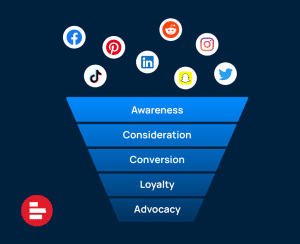Digital marketing has become a fundamental aspect of business growth in today’s digital age. However, allocating and optimizing your digital marketing budget can be a challenging task. This blog explores the importance of effective budgeting in digital marketing and provides insights into maximizing return on investment (ROI) for your business. From setting budgeting goals to prioritizing channels and measuring performance, we delve into strategies that can help businesses make informed budgeting decisions and achieve maximum results.
- Understanding the Importance of Digital Marketing Budgeting: We begin by highlighting the significance of budgeting in digital marketing. We discuss how a well-planned budget can help businesses allocate resources efficiently, target the right audience, and achieve their marketing objectives. By understanding the impact of budgeting on overall marketing success, businesses can lay the foundation for maximizing their ROI.
- Defining Your Budgeting Goals and Objectives: Before allocating your digital marketing budget, it is essential to define clear goals and objectives. We explore strategies for setting SMART (Specific, Measurable, Attainable, Relevant, Time-bound) goals that align with your business objectives. By having a clear vision of what you aim to achieve, you can allocate resources strategically and measure the effectiveness of your digital marketing efforts.
- Analyzing Past Performance and Industry Benchmarks: Analyzing past performance and industry benchmarks is crucial for effective budgeting. We discuss the importance of reviewing previous marketing campaigns, analyzing key performance indicators (KPIs), and benchmarking against industry standards. By understanding your historical data and industry trends, you can make informed decisions when allocating your digital marketing budget.
- Prioritizing Channels and Tactics: Digital marketing encompasses various channels and tactics, making it essential to prioritize and allocate the budget accordingly. We explore popular digital marketing channels such as search engine marketing (SEM), social media advertising, content marketing, and email marketing. By understanding the strengths and weaknesses of each channel and aligning them with your target audience, you can allocate your budget effectively and maximize your ROI.
- Testing and Experimentation: Budgeting for testing and experimentation is critical for staying ahead in the digital marketing landscape. We discuss the importance of allocating a portion of your budget for testing new strategies, platforms, and tactics. By embracing a culture of experimentation, businesses can identify opportunities for growth, optimize their campaigns, and discover new channels that resonate with their target audience.
- Monitoring and Measuring Performance: Tracking and measuring the performance of your digital marketing campaigns is essential for budget optimization. We discuss the significance of setting up tracking mechanisms, using analytics tools, and establishing key performance metrics. By closely monitoring performance, businesses can identify areas of improvement, allocate budget effectively, and make data-driven decisions for maximum ROI.
- Allocating Budget for Talent and Training: Investing in talent and training is often overlooked but critical for digital marketing success. We explore the importance of allocating budget for hiring skilled professionals, outsourcing specialized tasks, and providing continuous training and upskilling opportunities. By having a competent and knowledgeable team, businesses can execute their digital marketing strategies effectively and maximize their ROI.
- The Agile Approach to Budgeting: In the ever-evolving digital landscape, the agile approach to budgeting is gaining prominence. We discuss the benefits of agile budgeting, which allows businesses to adapt quickly to changes, seize opportunities, and reallocate budgets based on performance. By adopting an agile mindset, businesses can respond to market dynamics, optimize their campaigns in real time, and achieve greater ROI.
Effective budgeting is the cornerstone of maximizing ROI in digital marketing. By understanding the importance of budgeting, setting clear goals, analyzing past performance, prioritizing channels, testing and experimenting, monitoring performance, investing in talent and training, and embracing an agile approach, businesses can achieve greater ROI and drive sustainable business growth. With a well-planned and optimized digital marketing budget, businesses can allocate resources strategically, target the right audience, measure performance accurately, and make data-driven decisions to continuously improve their marketing efforts. By maximizing ROI through effective budgeting, businesses can stay ahead of the competition, reach their target market effectively, and achieve their marketing objectives in the dynamic digital landscape.











